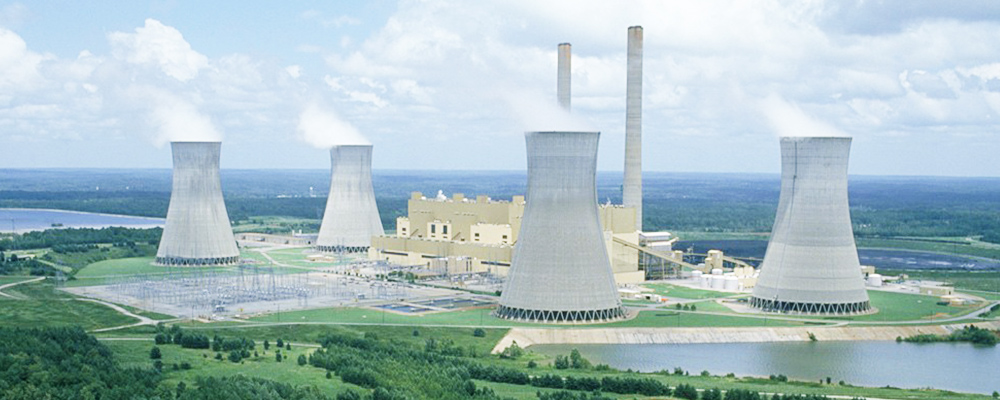FOR IMMEDIATE RELEASE
FERC on Earth Day rubberstamped Sabal Trail pipeline compressor stations in Georgia virus hotspot and Florida location that already leaked
Hahira, Georgia, April 23, 2020 —
“What better way to say they don’t care, than to do this on Earth Day?” said Suwannee Riverkeeper John S. Quarterman, “The Federal Energy Regulatory Commission (FERC)
broke out its rubberstamp during a virus pandemic,
ignoring its own process, as well as all the comments and our motion against,
to approve turning on two compressor stations,
including one in Albany, Georgia, which is the Georgia city worst-affected by the virus, and another at a site near Dunnellon, Florida, which already leaked multiple times even before construction started.”
![[Project Location Map]](https://www.wwals.net/pictures/2019-01-17--stt-phase-ii-request/20190117-5096-33348792-0040.jpg)
Project Location Map
Methane from fracking is not more important to push through a Sabal Trail pipeline than the health of local people or even Sabal Trail’s own workers.

Photo: WCJB, of Sabal Trail Dunnellon Compressor Station after leak, 2017-08-11.
Quarterman added, “With the price of oil negative and “natural” gas down 40%,
it’s time to ask investors if they want to go down with the fossil fuel ship of fools and time to ask politicians if they want this to be their legacy.”
Only four weeks before
the FERC approval letter,
FERC opened a comment period on a request by Sabal Trail for six more months to finish these same facilities,
in which Sabal Trail cited the virus pandemic as a reason.
Contradicting its own request, and during that two-week period, Sabal Trail asked FERC to go ahead and approve turning on both compressor stations,
which must involve Sabal Trail workers working during pandemic conditions.
FERC did not even mention that WWALS Watershed Coalition (WWALS) had moved to deny, nor any of the numerous other comments against turning on the compressor stations.
For that comment period, FERC required organizations to file again to be Intervenors, and only organizations that were already Intervenors on the process of the underlying FERC docket could do that.
The only one to do that
was Suwannee Riverkeeper for WWALS (see
PDF).
WWALS also filed a motion to halt Sabal Trail’s Phase II (which is mostly these two compressor stations), to deny Sabal Trail’s request to turn the compressor stations on, and to invoke penalties for already being two years late (see
PDF).
WWALS reasons to deny included repeated previous leaks at the Dunnellon Compressor Station of hazardous Mercaptan odorant, as well as leaks of methane at the Hildreth Compressor Station in Suwannee County, Florida, plus sinkholes at the Flint River near the Albany Compressor Station,
the virus pandemic, and Sabal Trail gas going to private profit through
Liquid Natural Gas (LNG) export, making a mockery of local landowners having to give up easements through federal eminent domain supposedly for the public good of the United States.
WWALS also noted that the only “justification” for Sabal Trail was alleged “market need,” and there was none any more, since oil and gas prices had dropped through the floor.
Since then, oil prices actually went negative for the first time in history,
and natural gas prices are down more than 40% from only six months ago.
FERC did not address the concerns raised by Our Santa Fe River (OSFR) about leaks, breach of commitment, and endangering commmunities Continue reading →

![[No people yet]](https://www.wwals.net/pictures/2020-01-04--ichetucknee-pictures/20200104_091843.jpg)
![[Third-party inspection, recission, stay, SEIS]](https://www.wwals.net/pictures/2020-07-20--wwals-brief-ferc-sabal-trail-phase-ii-rehearing/big/2020-07-20--WWALS-Brief-CP15-17-005-0001.jpg)

![[Operational Capacity 2020-04-26-0900]](https://www.wwals.net/pictures/2020-04-26--stt-low/Telerik.Web.UI.WebResource.axd.jpg)
![[Platts: Sabal Trail Phase II Compressor Stations]](https://www.wwals.net/pictures/2020-04-23--ferc-stt-platts/platts-stt-compressors-phase-ii.jpg)
![[Site Plan]](https://www.wwals.net/pictures/2019-01-17--stt-phase-ii-request/20190117-5096-33348792-0042.jpg)
![[Aerial]](https://www.wwals.net/pictures/2019-01-17--stt-phase-ii-request/20190117-5096-33348792-0046.jpg)
![[Project Location Map]](https://www.wwals.net/pictures/2019-01-17--stt-phase-ii-request/20190117-5096-33348792-0040.jpg)

![[Facing north (bare dirt)]](https://www.wwals.net/pictures/2020-03-30--wwals-motion-intervene-ferc-sabal-trail-extension-phase-ii/20200325-5216-34031970-0013.jpg)

![[Commissioner Jason Shaw (on right)]](https://www.wwals.net/pictures/2020-02-13--agl-homerville-settlement-proposed-psc/jason-shaw.jpg)
![[Boards and boats]](https://www.wwals.net/pictures/2020-01-04--ichetucknee-pictures/20200104_110627.jpg)
![[384A3916]](https://www.wwals.net/pictures/2016-11-23--ichetucknee-santa-fe/384A3916.jpg)